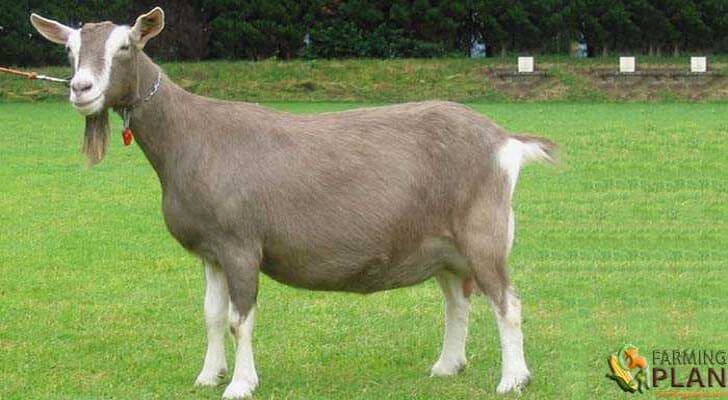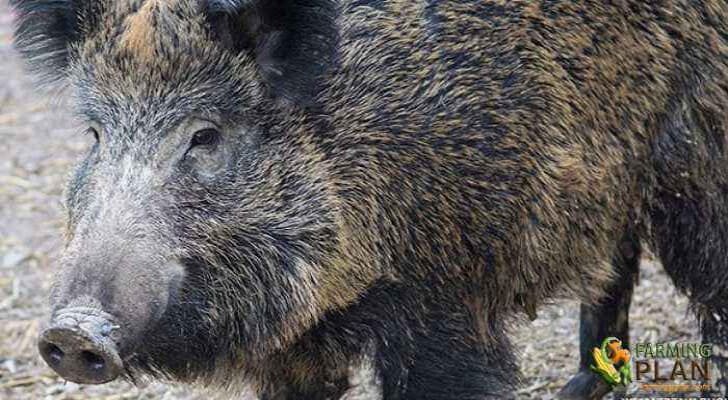The Berkshire pig is renowned for its quality meat and is beloved by farmers and chefs alike. With its white spots and distinctive black coat, this historic breed has a history dating back to the 17th century and even caught the attention of Queen Victoria. Renowned for its calm nature breed and compact size, the Berkshire pig remains a favourite for providing tasty pork, particularly Kurobuta Pork. This piece will delve into the history and distinct features of the Berkshire pig and offer a step-by-step guide for pet owners and breeders.

History and origin of the Berkshire pig
The Berkshire pig originated in mid-17th century England, specifically in Berkshire County when local English farmers bred it. The black coat with white markings distinguishes this breed, and the breed was carefully developed through meticulous selection of indigenous breeds’ breeding stock and crossing with Asia blood, including Chinese and Siamese. This wise breeding scheme produced an animal with improved meat quality, soon gaining fame, including that of Queen Victoria. The breed’s popularity spread to the globe when it was exported to Japan, where it became the foundation of Kurobuta Pork, a delicacy much sought after. Over the centuries, the Berkshire pig has managed to maintain its status as a heritage breed symbol. He remains famous for its delicious pork.
Read More: Poland China Pig: The History of the American Breed
Berkshire pig characteristics that distinguish them
The Berkshire pig can be easily recognized by its stunning black colour and unique white markings on the legs, face, and tail. The Berkshire pig is characterized by its relatively small size, usually medium-sized, making it easy to handle on farms and ideal for small and large operations. Berkshire pigs are also famous for their friendly breed temperament or calm and easy-going nature, which makes them a favourite among pet owners and breeders.
Its meat is of high value due to its superior combination of lean and fat, yielding tender, delicious pork. The Berkshire pig’s ideal breed characteristics, such as a healthy litter size and improved breed standards, make it an ever-popular favourite. Thanks to their past as an identifiable breed and selective breeding, these pigs stand out for their appearance and the quality of meat they yield. This makes them the number one option for someone seeking a traditional livestock breed with excellent meat production.
Read More: Celtic Pig: Farming Tips and Tricks Revealed
Nature and behaviour of this tranquil breed
Berkshire pigs are renowned for their friendly and docile breed nature, making them simple to handle, especially for small farmers and pet owners. They are characterized as friendly animals, quiet, intelligent, and tolerant; hence, they are a pleasure to work with. Their docile nature allows them to perform well in any environment, from family farms to extensive breeding facilities.
Due to their maternal nature, Berkshire pigs are also great breeders—breeding sows are attentive and protective of piglets. Their manageable size and tendency to be friendly with other pigs and animals make them a good fit for breeding pens and farms looking for a low-stress environment. These traits, coupled with white markings and an ability to endure various conditions, ensure that the Berkshire pig is a friendly, reliable breed.
Read More: Husumer or Danish Protest Pig: Farm
The perfect meal plan for the Berkshire pig
Berkshire pigs must be well nourished to develop correctly and produce high-quality meat. These pigs are given a balanced diet of grains, and most farmers use feed produced by family farmers rather than industrial agriculture to maintain the breed’s heritage. A proper diet and plenty of clean water help keep their lean meat-to-fat ratio, a significant ingredient in the delicious pork they are renowned for.
Their diet must be controlled by age and weight, from piglets to adults. As they grow older, Berkshire pigs require additional nutrition to keep their size in check and build the muscle mass needed for good meat production. Although grain from family farmers provides the overall nutritional base, there may be added natural supplements to ensure overall well-being by some farmers. Constant feeding schedules and proper food intake are needed for optimal meat quality, where the pigs will reach their pork slaughter weight without excessive stress.
How Berkshire pork leads the pack
Berkshire pork is best known for its exquisite flavour and juiciness, which puts it on the top of menus worldwide. Known as Kurobuta Pork in Japan, it’s one of the finest pork types in the world. The breed’s genetic makeup, the ratio of lean meat to fat, has to do with the tender, juicy pieces with a robust flavour that other breeds can’t top. Chefs use Berkshire pork due to its delicious pork chops and pork items, which do not dry out when cooked and make better-tasting meals.
Compared to other pork, which tends to be dry, Berkshire pork tastes richer and more savoury. Its superior meat is the product of careful breeding choices and generations of improvement in the breed. Whether the renowned Kurobuta Pork or skillfully grilled pork chop, Berkshire pork remains a winner of professional taste tests and meat connoisseurs.
Exclusive traits that breeders adore
Berkshire pigs have several traits that have made them a breeders’ favourite, starting with their impeccable breed standard and improved breed qualities. These pigs are renowned for their flawless breed traits, from well-proportioned size to mild temperament. The gentle breed nature of the Berkshire pig makes them easier to handle and breed, which also accounts for their good litter size and fair maternal features.
Extended breed maintenance through careful breeding has provided these pigs with a history of breed superiority long enough that every generation meets the requirement. Breed clubs and breed societies, passionate about the breed, have worked over centuries to maintain and improve the breed, ensuring that the Berkshire pig remains a distinct breed with consistent meat quality. Their capacity to do well in varying environments—from small family farms to bigger cooperative operations—makes them a desirable breeder choice.
As one of the breed’s top specialists often says, “The Berkshire Pig’s Temperament And Meat Quality Combination Is Unbeatable.”
Health issues and how to prevent them
Like every breed, Berkshires require attention to remain healthy and possess high-quality meat. Some common health issues are skin infection, respiratory infection, and joint disease. But with proper care, they can be easily prevented. Regular vaccinations and veterinary checkups are necessary to keep them healthy, especially for breeding sows and stock.
Keeping them in clean areas with ample movement space reduces the likelihood of disease. Berkshire pigs are generally sturdy animals, but keeping them manageable and avoiding overcrowding is essential to their well-being. Keeping pigs grouped by the same age reduces stress and disease transmission. Good health and housing conditions may strengthen their immune system, alleviating illnesses. With these precautionary measures, Berkshire pigs remain healthy and strong, allowing breeders to enjoy their good quality meat.
Step-by-step guide for farming and pet care
Proper breeding stock selection: Start by selecting a purebred or high-quality breeding stock that conforms to the breed standard. Choose pigs with white coats, black spots, and the best lean meat-to-fat ratio.
Breeding pen preparation: Ensure the breeding pen is large, clean, and free of any hazards. Berkshire pigs require spaces to move about and socialize with other pigs.
Breeding program formulation: If you plan to breed Berkshire pigs for meat purposes, formulate a longer-term breeding program to maintain breed improvement. Breed healthy animals with good maternal traits and good genetics to produce thriving offspring.
Feeding schedule: Follow a regular feeding schedule involving good-quality feeds supplemented with natural vitamins and minerals. Check growth and adjust diet size and age according to size and age to maximize their ideal slaughter pork weight.
Health and growth monitoring: Tightly examine for illness or injury. Check for weight and general health, especially as they approach slaughter weight.
Breeding and weaning: After mating, properly care for the sows throughout their pregnancy. After giving birth to piglets, provide them with sufficient space and a quiet place where they can suckle. Wean piglets in good time to ensure healthy development.
Adult pig care: Berkshire pigs are not high maintenance, but grooming and checks must be conducted properly to maintain them at their best.
Berkshire pigs are excellent pets for anyone because of their gentle nature. Create a cosy living environment with sufficient space to move around. Feed them a healthy diet to ensure their well-being, and have an exercise and play routine to build a relationship with your pig. Daily hygiene, such as fur, will keep them clean and happy.
Farmer and breed tips
Tip: “When you select Berkshire pigs for your farm, always pick breeders with an emphasis on breed maintenance and careful breeding in order to yield high-quality pork.” – A Foremost Breed Expert
Begin with registered breeders: Insist that your Berkshire pigs originated from a respectable breed club or serious breed society that maintains the breed’s standard. This assures you’re working with purebred animals likely to give you healthy progeny.
Focus on improving the breed: Always look for opportunities to improve the breeding of your pigs. This can be done through controlled crossbreeding or introducing traits from better-performing pigs into your breeding program.
Genetic diversity: While careful breeding is essential, crossbreeding may be employed to maintain a robust gene pool and reduce the risk of genetic disease. By being aware of breeding choices, avoid inbreeding.
Dietary care: The quality of your pigs’ meat is based on what they eat. Feed your Berkshire pigs grain from family farmers to produce quality meat. Avoid feeding them cheap, commercial feed. Employ a balanced diet with nutrients for best performance.
Health monitoring is key: Monitor the health of your pigs, especially the sows and piglets. Early detection of health issues can prevent costly losses and ensure your pigs remain in top condition.
Respect their space: These pigs are known for their calm nature but still need plenty of room to move and socialize. A spacious, clean environment is crucial to maintaining their well-being.
FAQ
What sets Berkshire pigs apart from other types of pigs?
Berkshire pigs stand out because they possess black hair with white patches and better meat quality. They are famous for their capacity to produce Kurobuta Pork, which is more flavorful and tender than regular pork.
Are Berkshire pigs easy to raise?
Yes! Berkshire pigs are renowned for their docile breed nature, which makes them easy to handle. They can also survive well in different environments, hence the best option for small and large farms.
What is the optimal diet for Berkshire pigs?
Berkshire pigs are best controlled on high-quality grain diets supplemented with natural vitamins and minerals. They must be fed modified diets as they grow to attain the highest pork slaughter weight and best quality meat.
How do I start a breeding program using Berkshire pigs?
Start by purchasing high-quality purebred stock from a reliable breed club or dedicated breed society. Focus on stock and breeding improvement by carefully selecting stock acceptable to the breed standard for meat quality and health.
Reviewing the health hazards of raising Berkshire pigs
Common diseases include skin and respiratory diseases, but good care can prevent these diseases. Regular visits to the veterinarian, a clean environment, and proper nutrition are the keys to staying healthy.
Conclusion
Berkshire pigs are among the most potent pigs in the world of pork production. It is renowned for its delicious pork and quality meat, earning it a loyal following. Whether you’re a farmer looking to breed for premium pork or a pet owner attracted to its calm, friendly nature, the Berkshire Pig offers something for everyone. With a rich history dating back to the 17th century, these pigs have proven their worth over the centuries, not just as livestock but as part of a living tradition. Adhering to the best practices in breeding, feeding, and care, you can breed healthy Berkshire pigs and get excellent meat that continues to be devoured worldwide.
Reference: Berkshire Pig


